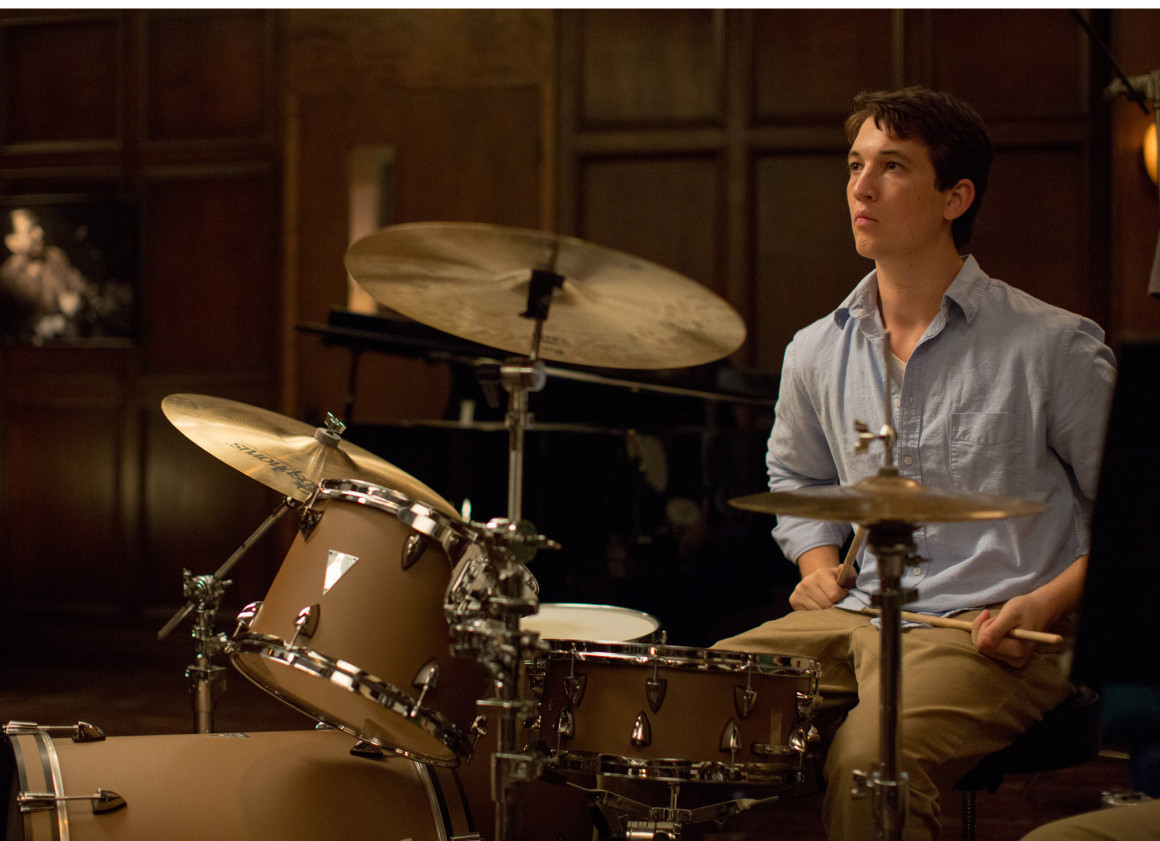
Whiplash explores the price of perfection
By Alexander Kim, November 27 2014 —
Whiplash, directed by Damien Chazelle, is the story of two characters who believe that perfection can only be achieved through great suffering.
Andrew Neyman (Miles Teller) is a young jazz drummer studying at the prestigious Shaffer Conservatory of Music. Andrew wants to be the next Charlie Parker. Terrence Fletcher (J.K. Simmons) is the dictatorial professor who conducts the school’s most prestigious ensemble. Fletcher is brutal and accepts nothing less than perfection from his players.
After walking into one of Andrew’s classes, Fletcher hears him play and asks Andrew to join his band. During Andrew’s first practice with the group, Fletcher tells him to “just have fun.” Minutes later, Fletcher hurls a chair at Andrew’s head for being off tempo. Fletcher says his job is to push players beyond their limits.
Simmons plays the role just right — not as a sadist, but a utilitarian. Fletcher doesn’t enjoy tormenting his students, but he’s not bothered by breaking their spirits. He only does what he believes to be necessary. “The two most dangerous words in the English language,” he says, “are ‘good job.’”
Although Fletcher doesn’t often give compliments, when he sees a performance he decides has earned genuine praise he offers it.
Teller’s performance is strong, though much quieter. Andrew is not a charismatic guy. His father says he has trouble looking people in the eye. He doesn’t have any friends, but it’s all the same to him. He “never saw the use” for them. Andrew is too focused on drumming, and while Fletcher rages, he quietly suffers. Teller excellently portrays a mixture of determination, exhaustion and anguish.
Smart photography and editing amplify Andrew’s emotional and physical struggle. A lot of time is spent in close-ups of Andrew’s sweaty face and bloodied hands. In one memorable shot, a cymbal dominates the foreground, pushing out Andrew’s face. Andrew strains to keep up the tempo, fighting against the drums as he pushes back at the cymbal to gain some ground.
But for a movie so focused on emulating jazz greats, the film’s soundtrack lacks the music that Andrew and Fletcher have devoted their lives to. There’s no talk of creativity, only technical perfection. Rarely does anyone in this film look like they’re actually enjoying playing or listening to jazz, making you wonder why Andrew wants to be the best so badly.
Whiplash asks whether the perfection is worth the pain that comes with it. To its credit, the film leaves the question open to the audience. The final scene is a thrilling sequence that makes the audience want to cheer, but also makes them ask what exactly you’re cheering for. By celebrating, are you condoning Fletcher’s abuse? It’s a trick that Chazelle executes perfectly.
